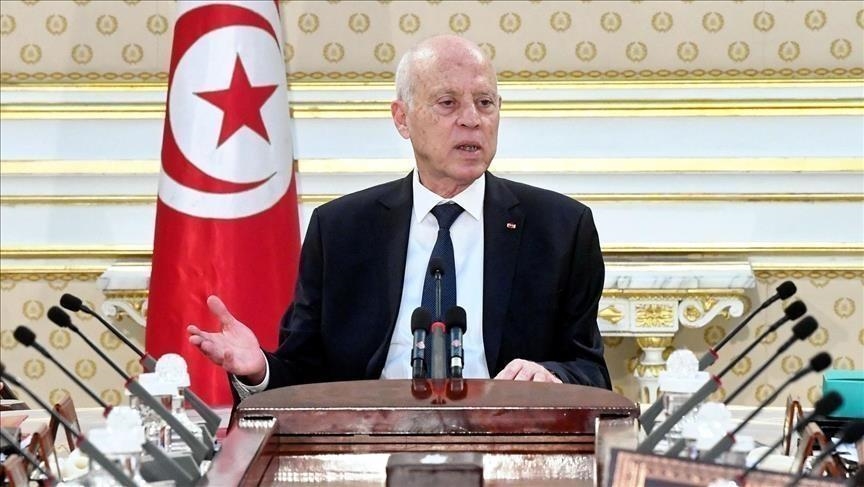Tunisia's president rejects foreign criticism of judiciary after jailing of political opponents
President Kais Saied calls criticism ‘blatant foreign interference’ in Tunisia’s affairs

TUNIS, Tunisia / ANKARA
Tunisian President Kais Saied denounced on Tuesday what he called "blatant foreign interference" in his country's affairs following international criticism of judicial rulings against his political opponents charged in the so-called "conspiracy against the state" case.
Speaking during a meeting with his Foreign Minister Mohamed Ali Nafti at the Carthage Palace, Saied “categorically rejected declarations and statements issued by foreign parties," calling them "flagrant interference in Tunisia's internal affairs," the presidency said in a readout.
The UN, France and Germany issued statements on Thursday criticizing recent court verdicts that sentenced several opposition figures to prison in cases widely viewed as politically motivated.
UN High Commissioner for Human Rights Volker Turk said the right of around 40 Tunisian opposition figures to a fair trial was violated.
“The process was marred by violations of fair trial and due process rights, raising serious concerns about political motivations,” he said in a statement.
The French Foreign Ministry also criticized the verdicts, saying the jailed individuals did not receive a fair trial and that judicial standards were not upheld.
"We are deeply concerned by the harsh sentences imposed on several individuals, including French nationals, and regret the lack of fair trial conditions,” it said in a statement.
On April 19, a Tunisian court sentenced those convicted in the “conspiracy against state security” case to prison terms ranging from 13 to 66 years. The trial included 40 individuals, including prominent political figures.
The court decisions, delivered early Saturday, are still subject to appeal under Tunisian law.
Among those sentenced were members of the Ennahda Movement, including leader Noureddine Bhiri, former Presidential Office Chief Rached Ghannouchi and Issam Chebbi, the secretary-general of the Republican Party.
Others affiliated with the National Salvation Front, a coalition of opposition figures, were also convicted.
Charges included conspiracy to undermine internal and external state security, forming terror groups and attempting to alter the government structure through violent means.
The case has drawn widespread attention, with protests from the families of the accused outside the courthouse during the trial.
The case dates back to February 2023, when several political figures, lawyers and civil society activists were arrested.
Human rights organizations and opposition parties have condemned the case as politically motivated, claiming it is part of a wider effort to suppress dissent against Saied.
Authorities, however, maintain that the charges are related to national security threats and criminal activity.
Since Saied's exceptional measures began in July 2021, which included dissolving parliament, and the judiciary, and instituting a new Constitution through a referendum, the opposition has accused him of attempting to centralize power and undermine the democratic process in Tunisia.
Anadolu Agency website contains only a portion of the news stories offered to subscribers in the AA News Broadcasting System (HAS), and in summarized form. Please contact us for subscription options.



